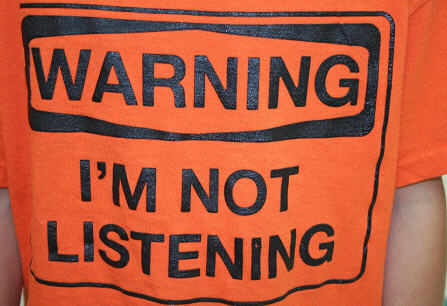It’s All About the Details
Details have been on my mind lately – you know, the nuances in life that make life, well – interesting. I thought this topic would be a personal blog post, because the details that have stood out to me recently have been pretty personal. One of our three dogs passed away recently – a sad first for our family – and while the event itself was huge, it’s the little things that stand out the most in regards to his absence. The way my youngest son still pushes his plate back from the edge of the table because the dog used to steal his food, the empty chair in our bedroom where we’d find him every morning, the fact that I can put bird seed in my bird feeders again and not have to worry that the dog will eat it. These and many other little details are what remind me every day of the bigger loss.
So how does this post end up here, on our agency’s blog? Because it has occurred to me that it’s the details that matter in business, too. The big events are certainly the most memorable – winning new clients, watching the first sale come through, unveiling your new brand or opening a new store. But it’s the little details in between all these larger situations that really matter – and the little details that help you not only to keep your business up and running, but to beat the competition.
Are you thi nking about the little details? Once you win a customer or a client, are you welcoming them and thanking them for their business? Does your website make an interaction with your company pleasant and easy, or are you making prospects work too hard to become a customer? Can they easily find what they are looking for? Do you have a waiting room that’s comfortable or stark? Do you think about simple yet “nice touches” that would make a prospect want to do business with you over a similar competitor?
nking about the little details? Once you win a customer or a client, are you welcoming them and thanking them for their business? Does your website make an interaction with your company pleasant and easy, or are you making prospects work too hard to become a customer? Can they easily find what they are looking for? Do you have a waiting room that’s comfortable or stark? Do you think about simple yet “nice touches” that would make a prospect want to do business with you over a similar competitor?
Once you win a customer or a client, are you communicating with them regularly – but not more than they want? Do you know how your customers prefer to be contacted and how often? Have you asked? When you’re following up with a prospect, do you make them feel personally wanted as a customer? Just this week, a company followed up with me based on an interaction at a trade show (good) but I was turned off by the method (bad) of follow up and it made me not want to do business with them. I understand that companies need to maximize time – that sales leads have to be captured and plopped into databases (we’ve worked with enough sales and marketing software clients – Landslide, Salesnet, RightNow, Genius, etc. – to understand how it works and why). And maybe I’m naive, or expecting too much – but as technology gets better, it seems to me it could also help companies to at least appear to be more personable in sales. When I receive a sales email that’s claiming to understand my business, and want my business, but is clearly a generated “next step” email from a sales automation software solution, I feel insulted – not really wanted as a customer. When they use my login name as the lead – which appears as “christine” because I rarely capitalize when I’m signing up for something online – it’s obvious. It’s a little, tiny detail, right? But to me – it’s a detail that turned me off from doing business with this company. A little detail that turned into a lost sale.
On the flip side, we’ve got a client who – even as they’ve grown from startup to public company – calls each prospect when they trial a product. I remember the first time I tried Constant Contact – the call startled me – it literally happened within minutes of me entering my information online. I didn’t need help but you know what? Knowing that if I did – especially in this day and age of electronic communication – I could get a human on the phone, was a nice touch. It stood out – the call was brief, to the point and not intrusive. I was impressed – and that was before they were a client.
An experience that falls somewhere in between these two is a recent interaction with our bank. They recently upgraded some services for us and assigned a personal Account Manager (great!). He emailed and called me to introduce himself, which was good, but the little details that were missing, some that I felt could have made me a happier customer (and not feeling like a call was wasting my time), were some suggestions or thoughtful interaction. The introduction, in my opinion, could have included something more along the lines of, “We noticed you often do this, and we think this change will make your life easier – do you want to learn more?” It didn’t need to be anything complicated, but just something that showed a personal touch about my business and my banking habits that demonstrate you care about me specifically as a customer.
In PR, one of the biggest complaints reporters have always had is that they receive off-topic, automated emails from PR executives. PR teams do this – using software to automate email blasts – because time is money in our business, literally. Not only can you move faster and thus work on more clients and charge more hours, but the more pitches you get out, the longer a “We Pitched” list you can give to a client, right? Well, I guess that may be true – but the little details, taking the time to pitch a reporter with a custom email or call, mentioning personal details that remind them you know them or you at least know their work and read what they write – are more likely to yield big results. Would a client rather have a long list of “We pitched 100 reporters” – but no coverage results – or a shorter list of “We pitched 10 key publications and here’s the result – 10 quality feature articles”? I’m guessing the latter.
So take time to think about the details today. Whether it’s how you sell, how you service or how you build your business – branding, HR, promotion, etc. – caring about the little details can make a big difference.
How do you incorporate the little details in your daily business?

 Social media isn’t any more of a fad than these very technologies that you and I and millions of others use every day. “It’s just a fad” – unless you’re talking about fashion and style – tends to come from resistant-to-change-and-scared-of-being-left-behind people. I remember when instant messaging was first used in the office of my PR agency back in the early 90s. A lot of people complained about it and said they’d never use it, what was the point when you could just pick up the phone, etc. Personally, I think they were just terrified of IM’ing messages to the wrong person (which was always an enlightening event usually resulting in insults), but eventually they came around to understanding that IM offered a different kind of value than the phone. And one that they wanted.
Social media isn’t any more of a fad than these very technologies that you and I and millions of others use every day. “It’s just a fad” – unless you’re talking about fashion and style – tends to come from resistant-to-change-and-scared-of-being-left-behind people. I remember when instant messaging was first used in the office of my PR agency back in the early 90s. A lot of people complained about it and said they’d never use it, what was the point when you could just pick up the phone, etc. Personally, I think they were just terrified of IM’ing messages to the wrong person (which was always an enlightening event usually resulting in insults), but eventually they came around to understanding that IM offered a different kind of value than the phone. And one that they wanted. Even
Even small business, and one that often promotes relevant technologies, product and services, we are passionate about supporting the SMB community. Small businesses are the crux of our economy – stimulating new ideas, new jobs and new creations every day. So we wanted to remind you that today marks the last day to make a referral on “
small business, and one that often promotes relevant technologies, product and services, we are passionate about supporting the SMB community. Small businesses are the crux of our economy – stimulating new ideas, new jobs and new creations every day. So we wanted to remind you that today marks the last day to make a referral on “ Huh? With that mentality, no wonder marketing is often the first line item when companies are facing budget cuts.
Huh? With that mentality, no wonder marketing is often the first line item when companies are facing budget cuts.
